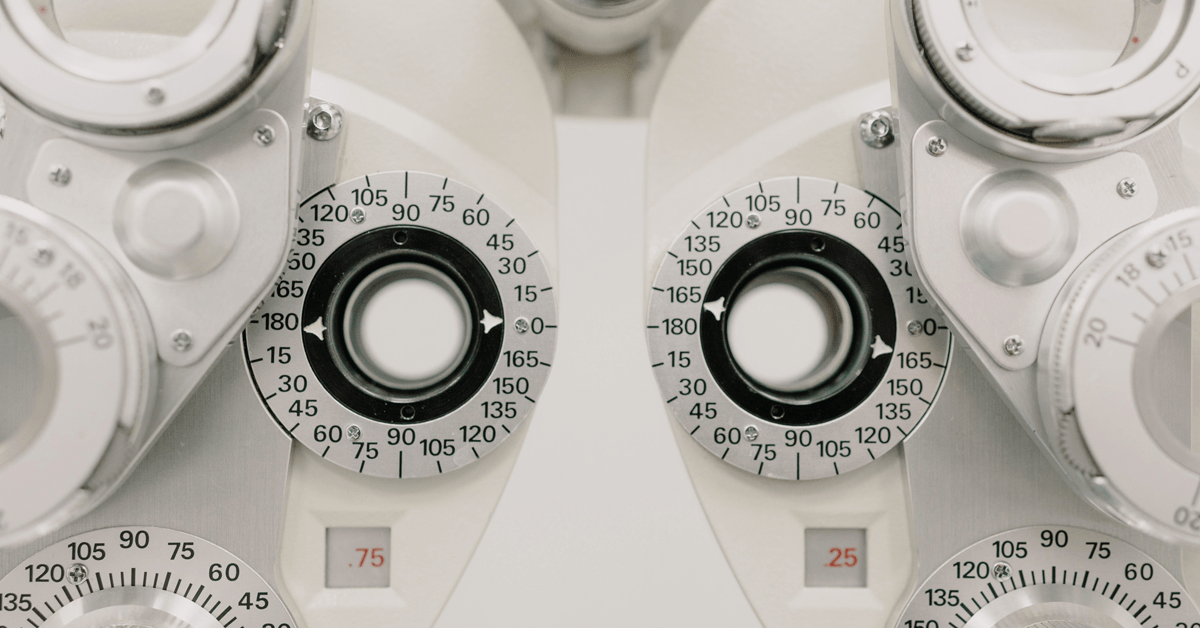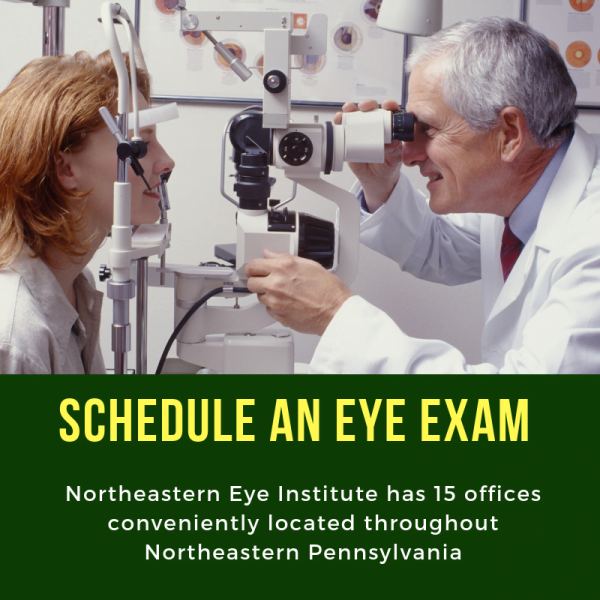
Eye exams are a crucial part of your health routine. These important visits ensure that all vision issues are detected in their earliest stages. At Northeastern Eye Institute, we have a team of highly trained ophthalmologists and optometrists who have extensive experience diagnosing and treating a wide range of vision conditions. By visiting one of our offices regularly for an eye exam, you can maintain the best possible vision.
The frequency of your eye exams varies based on a variety of factors, including:
- Age
- Whether you are at high risk for certain vision conditions
- Whether you currently need corrective lenses
- Whether you suffer from vision conditions
Eye Exams for Children
Over 80% of information presented in classrooms comes in a visual format. As a result, it’s crucial for children to have regular eye exams to address any vision problems which may interfere with learning.
The American Optometric Association recommends that children have their first eye exam when they are six months old and a follow-up exam when they are three. After that, children should go for regular eye exams every year once they start school.
Children who are at higher risk of vision problems should get eye exams more frequently. These risk factors may include:
- Premature birth or low birth rate
- Developmental delays
- An infection developed by the mother during pregnancy
- Strabismus (crossed eyes)
- High refractive errors (nearsightedness, farsightedness or astigmatism)
- Family history of eye disease

Eye Exams for Adults
The need for eye exams doesn’t end when you reach adulthood. They remain an important part of your preventive health regimen for the rest of your life. The American Optometric Association recommends comprehensive eye exams every two years for all adults between the ages of 18 and 60. Once you are over the age of 60, you should go for an eye exam once a year.
The following risk factors may cause you to require more frequent eye exams throughout adulthood:
- Family history of eye disease (especially glaucoma)
- Diabetes
- High blood pressure
- Consumption of medication that may cause visual or eye-related side effects
- Visually demanding occupation
- Prior history of eye injuries
- A previous eye surgery
If you wear glasses or contact lenses, you should go for an eye exam every year to make sure your prescription is up-to-date.
Eye Exams at Northeastern Eye Institute
The eye doctors at Northeastern Eye Institute offer comprehensive eye exams. These include a review of your eye health history, including your current visual state, any new visual complaints you may have, and relevant information such as allergies or genetic predisposition that may impact your vision.
In addition, we perform a comprehensive assortment of vision and eye health tests, including:
- Visual acuity test
- Test to determine your vision prescription
- Pupil response exam
- Slit lamp test to examine the external structures of the cornea
- Measurement of your eye’s intraocular pressure to identify glaucoma in its earliest stages
- Examination of your eye’s retinal tissue, nerve function and blood vessels
- Visual fields test
- Peripheral eye examination using dilation drops
Contact our Northeastern Pennsylvania Eye Doctors
Please contact Northeastern Eye Institute using the form on this page or call 855-204-6888 today to schedule an eye exam. We have 15 offices conveniently located in Scranton, Wilkes-Barre, Hazelton and throughout Northeastern Pennsylvania.